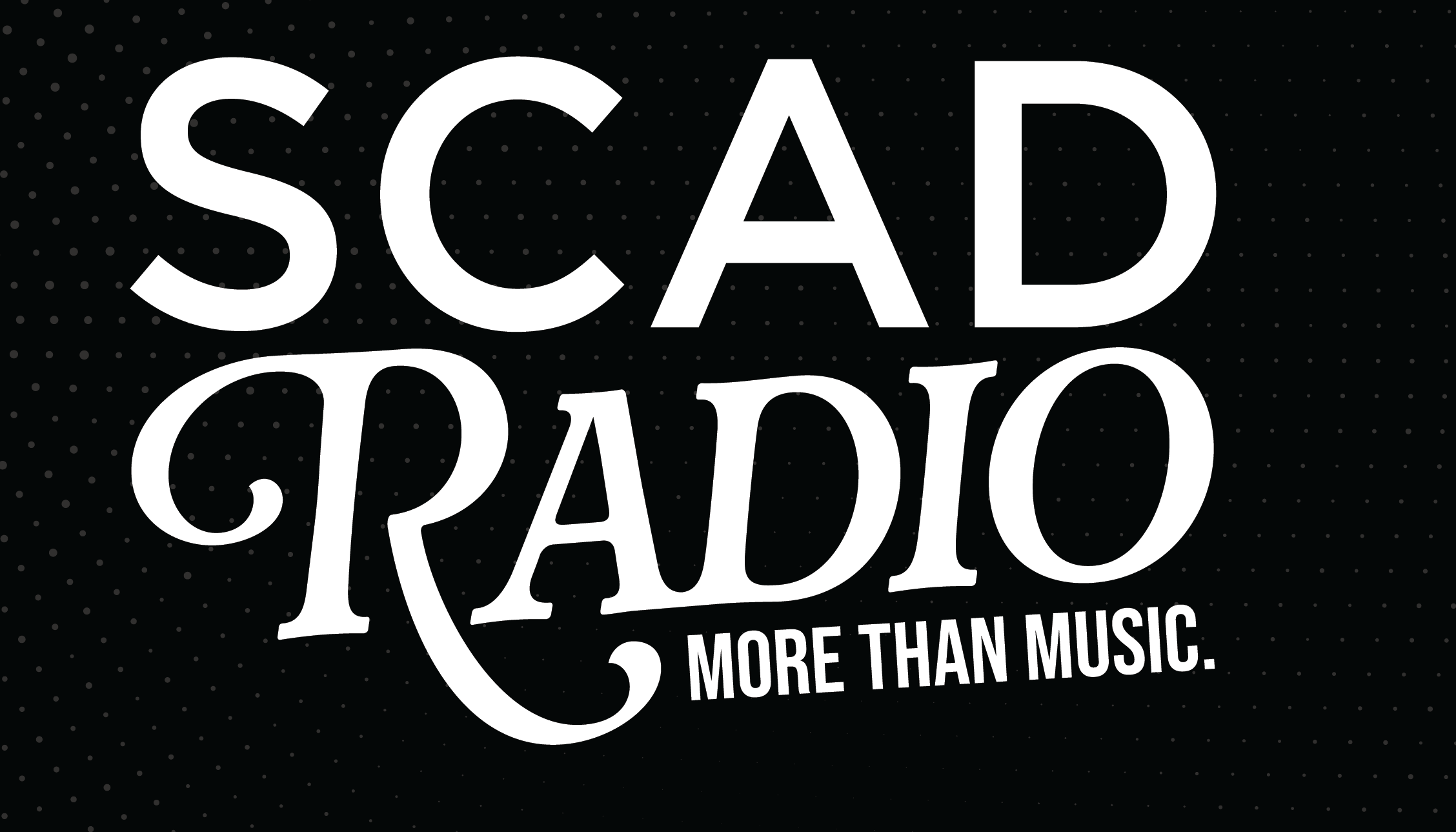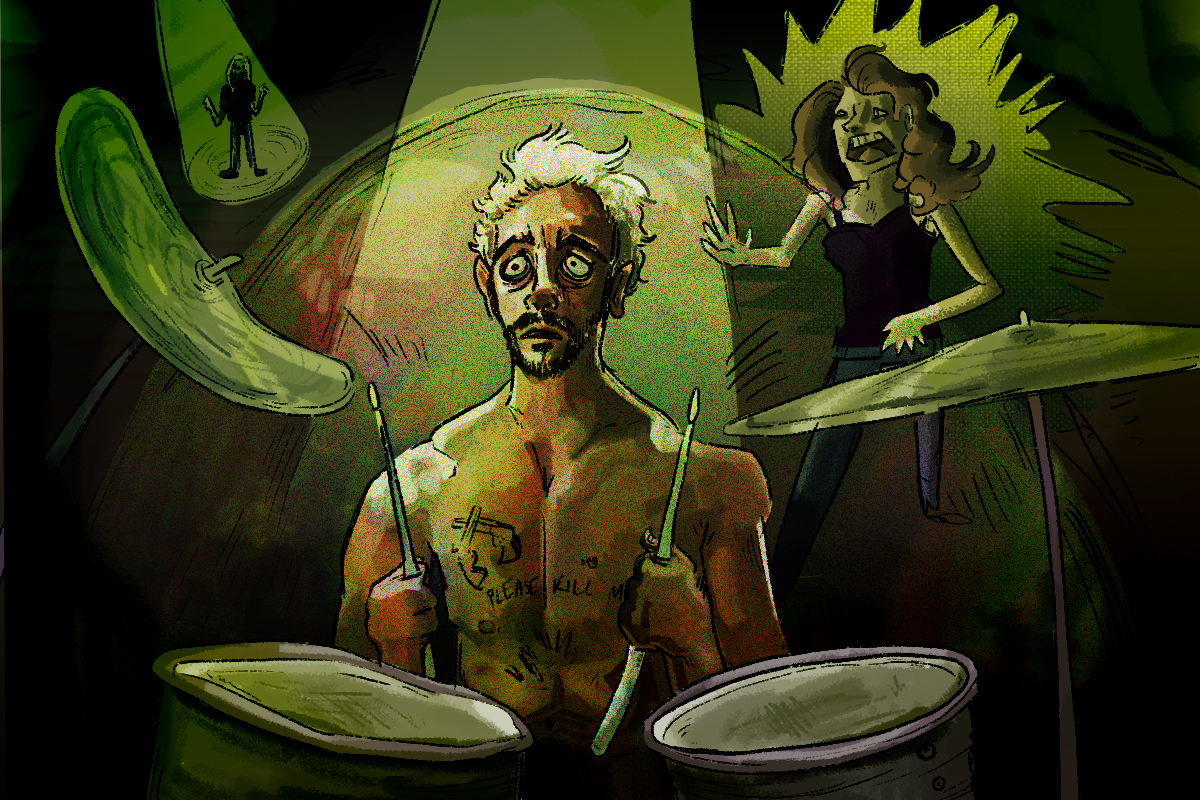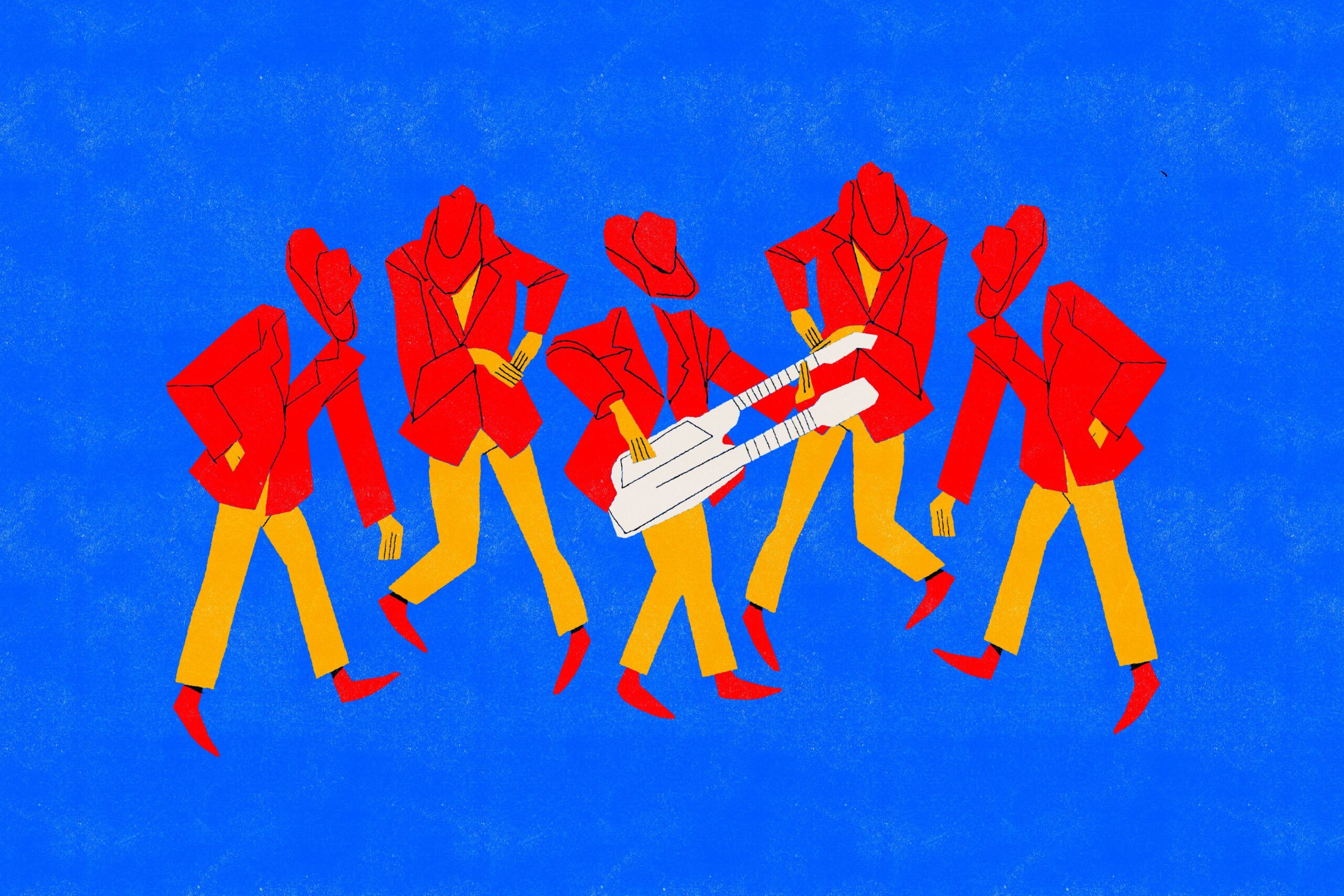Two weeks ago, I had the privilege to see the screening of and post-screening interview about Sound of Metal directed by Darius Marder at the online Savannah Film Festival 2020. I knew that there was a good chance that the movie would pull my heart-strings after watching the trailer, but ultimately I misjudged just how simultaneously interesting and heart-wrenching the movie would be.
Sound of Metal tells the story of two struggling punk-metal performers: Ruben, played by Riz Ahmed, and Lou, played by Olivia Cooke, and the abrupt change in their gritty, punk, constantly-touring van-life when Ruben loses his hearing while playing the drums at one of their gigs.
Losing hearing capabilities is probably the most common fear for music-performers; they have in-ear monitors (IEMs) not only to protect their hearing, but so they can be able to hear their own voice and project the correct pitch. People who are naturally hearing do not realize just how much sounds and vibrations impact our everyday life, and the documentary style of Sound of Metal allows the audience to follow and empathize with Ruben Stone’s fear, anger, and eventual acceptance of becoming deaf, something that hearing people would never get to experience.
The introduction to the movie made it seem like there would be a movie soundtrack filled with classic hits like Meatloaf’s “I’d Do Anything for Love, but I Won’t Do That,” included in the playful banter between the two main characters. But the soundtrack of the movie is short-lived, as the majority of the sound in the film replicates the “sound of silence” that Ruben now experiences. In the exposition of the film, there are important scenes between Ruben and his girlfriend (and bandmate), Lou, bouncing between Lou’s distraught, hearing perspective, and disconnect of Ruben’s world with no sound. The actor’s portrayal of the rapidly switching emotions was brilliant; I felt like I was sitting in the diner along with them, watching Lou try to communicate by writing on the paper diner-placemat, and Ruben reminding her that he could not hear her. The interaction felt so real.
The only real gripe with the movie is they did not cast a deaf actor for the main-role, and it’s unclear why that decision was made. It could have been to have a bigger name for marketing, could have been because there is a section of the movie where Ruben is hearing; whatever the excuse may be, there is an overall under-representation of people with “disabilities” being cast in lead roles. (Though, as the movie clearly stated, being deaf is not a disability, it’s just a different way of living life. It’s really the lack of knowledge that hearing people have in both sign language and deaf culture that makes being deaf a disability within our society).
However, I do find it impressive just how much Riz Ahmed learned for the role: sign language, how to play the drums, and doing his best to understand the deaf experience and portray that while still being someone who is hearing. As far as well-known actors go, the choice of Ahmed for Ruben Stone was pretty good. Listening to Ahmed speak about his life-changing experience acting in this role during the post-screening interview was really a privilege, and I could see just how important he thought his role as Ruben Stone was.
The film’s saving grace was choosing to cast actors such as Paul Raci, a deaf Vietnam veteran who lost his hearing when a bomb went off near him, incorporating his real story into his character, Joe. Additional deaf actors include Chelsea Lee and Shaheem Sanchez. Sound of Metal had a diverse representation of individuals and subculture in the movie—deaf communities, punk-subculture, addicts, deaf addicts, low-income individuals, deaf children, deaf teachers, a deaf sponsor, a variety of languages, a queer black actor, a heavily-tattooed-black-deaf acto. It was such a broad representation of individuals, that we typically do not see in one Blockbuster movie. The authenticity of the movie became so much greater with the addition of these deaf actors, and would not have been the same without the casting-director’s choice to include a variety of deaf actors.
The choice to cast people with such a variety of backgrounds aids Hollywood in one of their largest faults: representation. Almost any individual could see Sound of Metal and relate to more than one character. But more importantly, when representation is properly done, it educates people about groups that are different than their own, and breaking that barrier in our media is a stepping stone towards eventual true equality.
I don’t want to be the reviewer who reveals the entire plot; I think it’s important to follow Ruben’s story as it happens. Many decisions he made shocked me, the raw emotion radiated from the interaction of the characters in the film, and though the ending was not what I expected, the story came full-circle. Overall, I think everyone should watch Sound of Metal at some point in their life. The vast exposure to different communities of people, intense emotions, and lessons learned are all remarkable aspects that the audience can learn from and empathize with. It was a brilliantly composed movie; I definitely see myself going back to Sound of Metal in the years to come.
The wait for the Sound of Metal is close to over: It is coming out on November 20th in theaters, and it will be released on Amazon Prime on December 4, 2020. (I wouldn’t necessarily suggest going to a movie theater right now, especially with COVID spikes this fall, but that choice is left up to you). It’s well worth the 2 hours and 10 minutes of your time!





